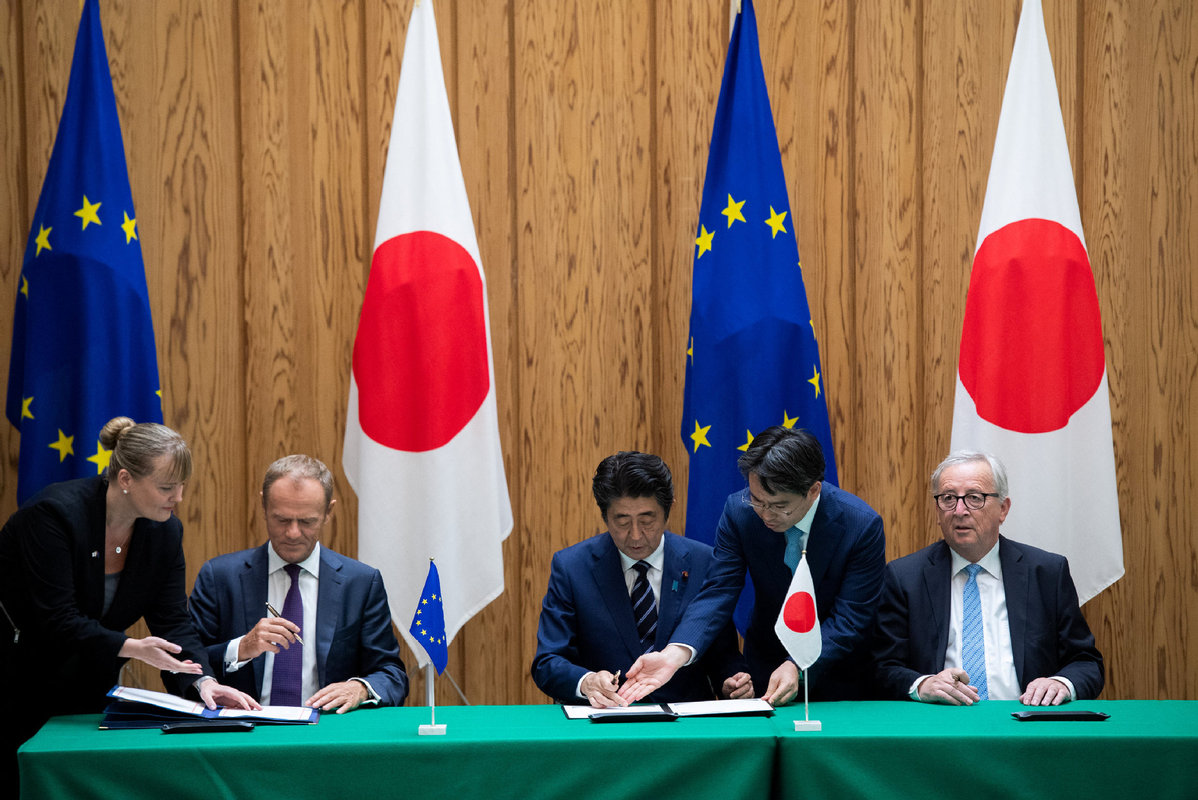US risks being left behind as world embarks on new journey: China Daily editorial
chinadaily.com.cn | Updated: 2018-07-19 20:39

The tariff-reducing deal signed by the European Union and Japan on Tuesday that marks a major trade liberalization step that will have a profound bearing on the global trade regime.
The free trade deal that will create a trade zone covering 600 million people and almost one-third of the global GDP shows that negotiations are more productive than threats in pushing forward trade.
By signing the agreement, Japan and the EU, have put the Donald Trump administration in an awkward situation as it is clear that as a result of its attempt to disrupt the normal global trade order the focus of global trade is switching to Eurasia.
Multinational law firm Baker Mackenzie said in a report released on Monday that China’s direct investment in European Union countries was nearly nine times more than in North America in the first half of the year and the value of completed Chinese investment was six times higher in Europe than in North America.
While China’s tighter regulation is behind the falling outbound investment in the US, the uncertainties caused by the rising protectionism sentiment in the US are undoubtedly an important factor of the investment divergence.
As time goes by, the effects the Trump administration’s coercion-based trade policies are having on the US economy will become increasingly apparent, as the world’s major economies implement reciprocal tariff policies and engage in closer cooperation with each other.
The Trump administration has claimed that it will obtain more benefits from its unilateral trade moves targeted at China and its other major trading partners. But as it is isolated from the global trade regime, the US will ultimately find the losses outweigh the gains.
In initiating trade actions to serve its domestic political needs, the Trump administration is taking a wrecking ball to the international trade rules that were put in place by the developed nations after World War II to avoid a chain reaction of higher tariffs.
If the US administration persists in trying to have everything its own way, then it will continue to face counteractions by others. Washington has set the events in motion with its unilateralism, protectionism and power politics, but, as it is discovering, the international community is united and determined to respond by upholding their legitimate rights and interests and maintaining the multilateral trading rules and system.
The Trump administration should put aside its belief that disputatiousness will be to its advantage.
























